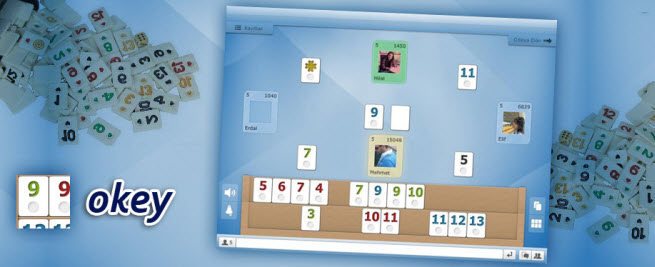Peak Games, a maker of social games in Turkey, is acquiring Saudi Arabia’s Kammelna Games to expand its presence in the fast-growing social game market in the Middle East.
[aditude-amp id="flyingcarpet" targeting='{"env":"staging","page_type":"article","post_id":392271,"post_type":"story","post_chan":"none","tags":null,"ai":false,"category":"none","all_categories":"games,","session":"D"}']With more than 20 million monthly active users, Peak Games says it has become one of the top four social game companies in the world in the past 14 months, mainly on the strength of its games that are tailored for various countries and ethnic groups in the Middle East, North Africa, and Turkey. Istanbul-based Peak Games wants to become the leader for online social games in the region, said Rina Onur, chief strategy officer of Peak Games, in an interview.
“We have been expanding and hiring aggressively,” Onur said. “Kammelna is a great fit for us because they create culturally relevant games that are social and multiplayer in nature.”
While other game makers often pay lip service to localizing their games for the Middle East, Peak Games goes far beyond simply translating games into Arabic. Peak Games has Zynga-like content such as Happy Farm, which has 2.2 million daily active users. That means the game is the second-most popular social farm game in the world in a region with more than 400 million consumers. The region already has 65 million Facebook members.
But it also has multiplayer titles such as Okey (pictured at top), Okey Plus and other titles that are culturally relevant because they are based on traditional regional board games.
With Kammelna, the company gains new executive leadership, local talent, a new studio and some hugely popular games. One of Kammelna’s popular games is Baloot, based on a popular regional card game.
Michael Pachter, an analyst at Wedbush Securities, says that Peak Games is exploiting a first-mover advantage in delivering culturally relevant games in the region. The result is one of the highest levels of user engagement and average revenue per user in the world, Pachter said.
The Middle East has been in the midst of turmoil as a result of the Arab Spring revolt and its aftermath. But you would never know it, based on the games that Peak Games is creating. Onur said that her company is not making political games. Clearly, the unspoken truth is that doing so would get the company in a lot of hot water with local governments. But Onur said that the company’s developers are simply focused on making casual and hardcore games that they believe will be fun to play.
“We are not very interested in political games,” Onur said. “We just want to do what we know best.”
[aditude-amp id="medium1" targeting='{"env":"staging","page_type":"article","post_id":392271,"post_type":"story","post_chan":"none","tags":null,"ai":false,"category":"none","all_categories":"games,","session":"D"}']
With Kammelna, Peak Games will continue to launch more free-to-play multiplayer online games that are based on traditional Arabic board and card games. Peak Games is run by chief executive Sidar Sahin.
Kammelna was founded by Essam Alzamel, who will continue to run the studio in Damman, Saudi Arabia, where more than two-thirds of the Internet users play games online. On average, Kammelna’s users play more than one hour per play session. Peak Games already has studios and offices in Istanbul, Ankara, Barcelona, Berlin, San Francisco and Amman Jordan.
Peak Games also recently acquired Umaykut and Erlikhan game studios. The company is funded by Earlybird Venture Capital, Hummingbird Ventures, and serial business angel Evren Ucok. Peak Games has 150 employees and Kammelna has 30.

